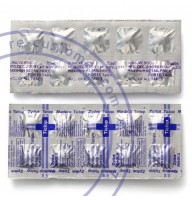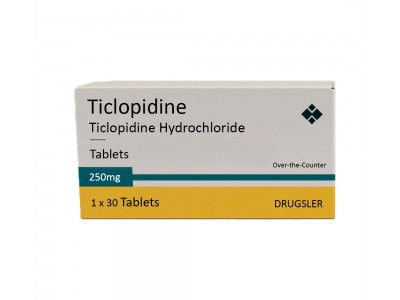Ticlopidine, although historically used in the management of acute myocardial infarction (MI), has largely been superseded by newer antiplatelet medications such as clopidogrel (Plavix) and prasugrel (Effient) due to several reasons.
Initially, ticlopidine was considered beneficial in acute MI as it inhibits platelet aggregation, thereby potentially reducing the risk of further clot formation in the coronary arteries following an MI. However, its use declined due to several factors:
Delayed Onset of Action: Ticlopidine takes several days to achieve its full antiplatelet effect, which limits its usefulness in the acute setting where immediate platelet inhibition is crucial.
Side Effects: Ticlopidine is associated with significant side effects, particularly a risk of agranulocytosis (severe decrease in white blood cell count), which can weaken the immune system and increase susceptibility to infections. This risk, combined with the need for regular monitoring of blood counts, makes ticlopidine less favorable compared to newer antiplatelet drugs that have a more favorable safety profile.
Drug Interactions: Ticlopidine has interactions with other medications and may require careful adjustment and monitoring when used in conjunction with other drugs, which complicates its use in patients with acute MI who often require multiple medications.
In contrast, newer antiplatelet medications like clopidogrel and prasugrel offer more predictable and rapid onset of action, along with a lower incidence of serious adverse effects like agranulocytosis. These medications are now preferred in the management of acute MI alongside aspirin and other therapies, as they provide effective platelet inhibition without the significant drawbacks associated with ticlopidine.
Therefore, while ticlopidine was historically used in acute MI, its role has diminished over time due to its delayed onset of action, serious side effects, and the availability of safer and more effective alternatives.

